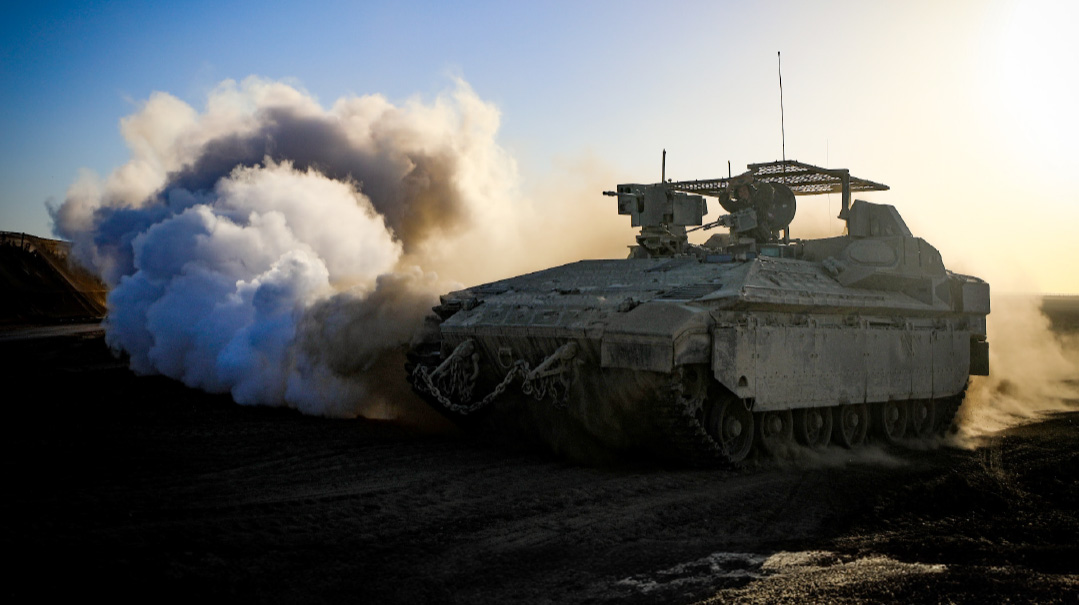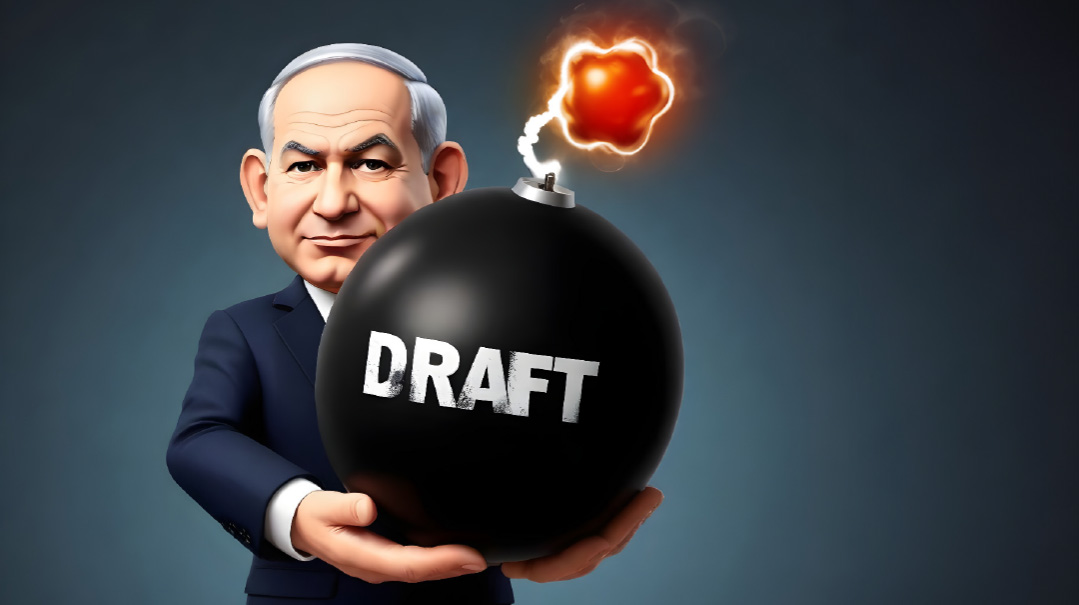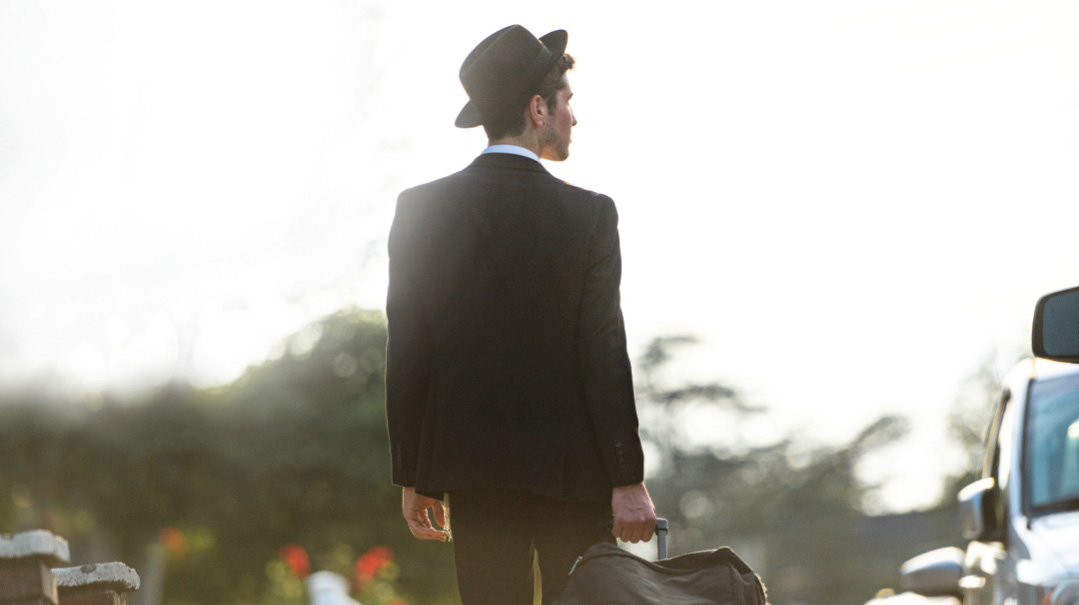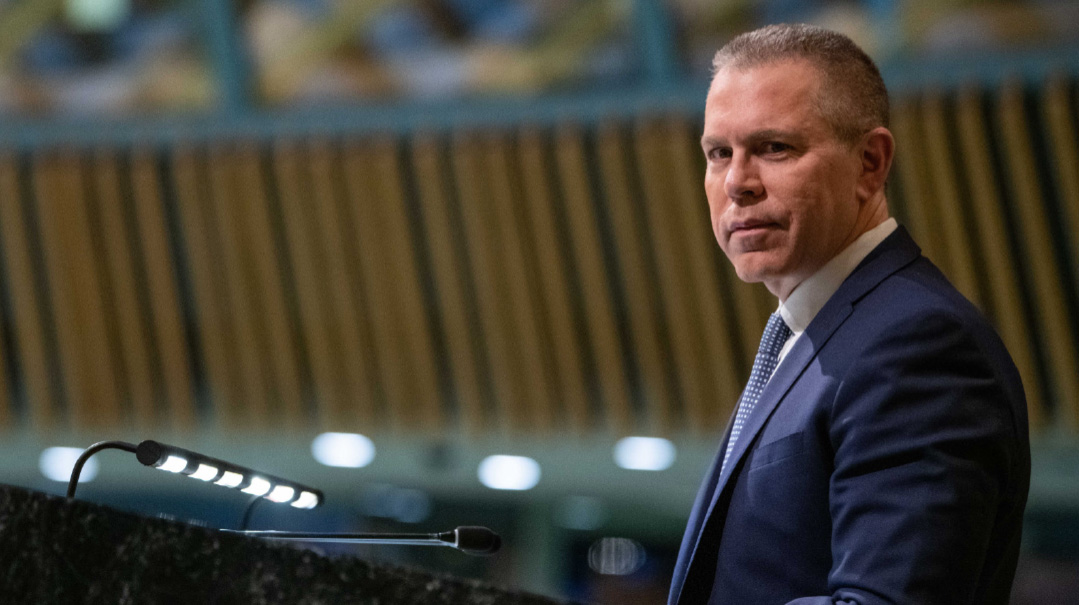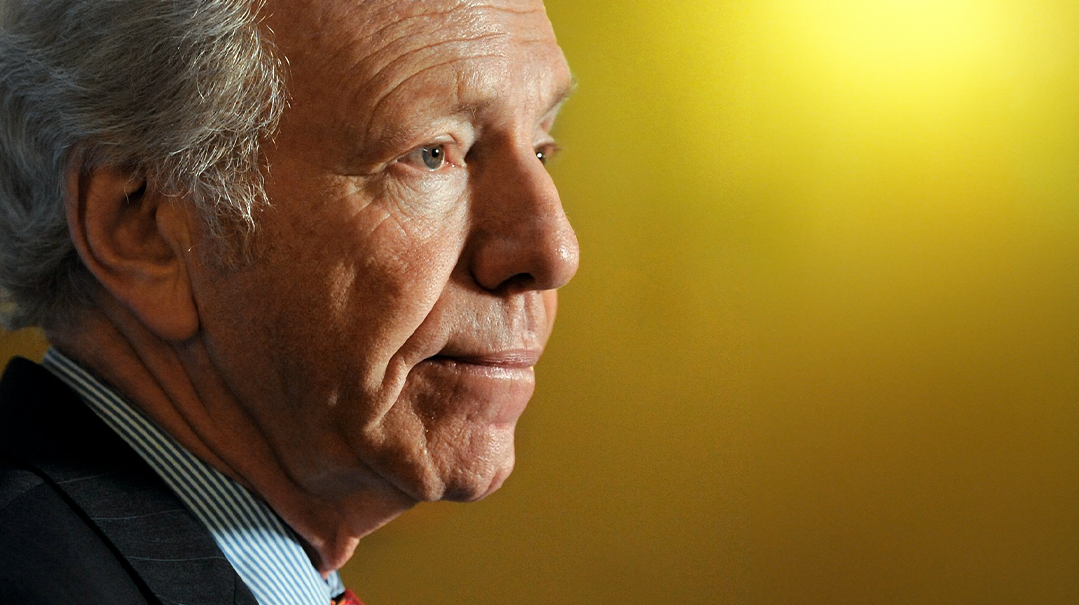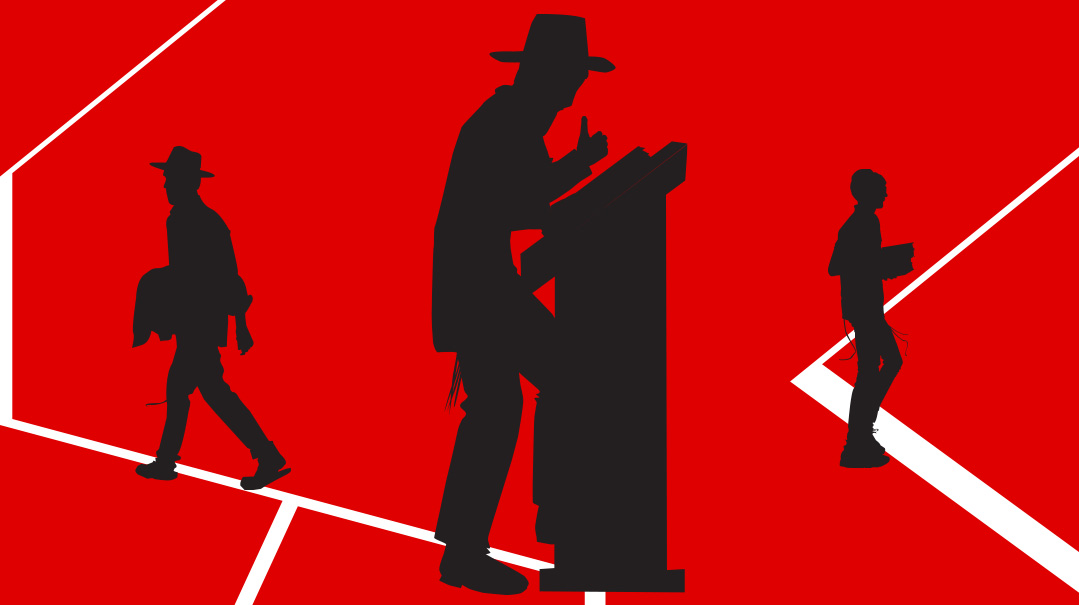Kippah-Gate a Sign of Saudi Power Struggle

Rabbi’s Riyadh run-in blows lid off Mohammed bin Salman (“MBS”) foes
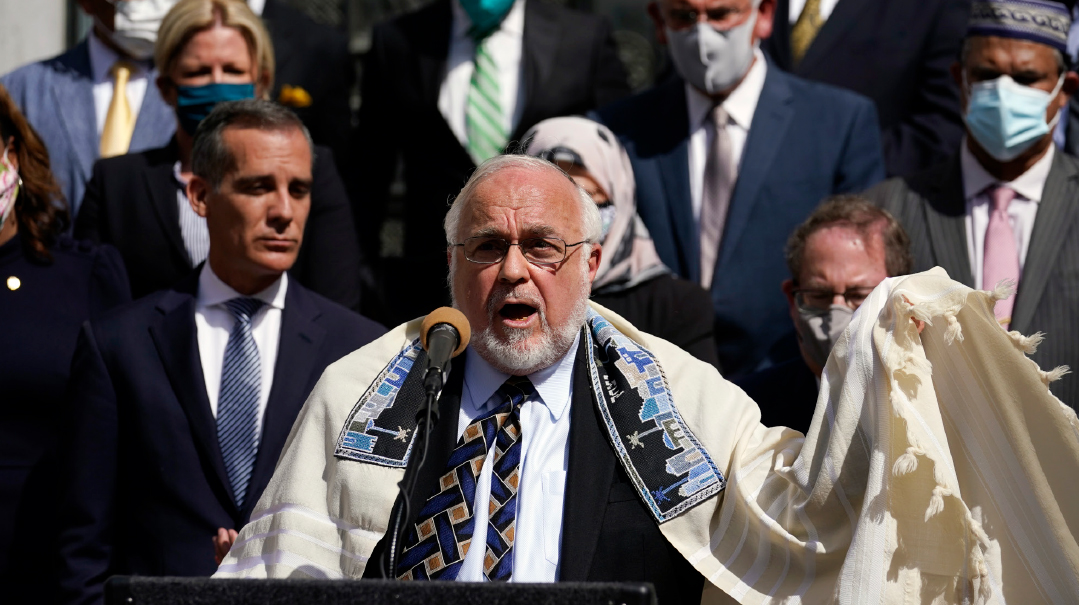
Rabbi Abraham Cooper got a nasty reminder on his recent trip to Saudi Arabia that despite Crown Prince Mohammed bin Salman’s modernizing reforms, there remains an entrenched opposition in the desert kingdom that is willing to stir up international discord just to show opposition to his controversial leadership.
Rabbi Cooper, chairman of the United States Commission on International Religious Freedom (USCIRF) and director of the Global Social Action Agenda for the Simon Wiesenthal Center, was visiting Saudi Arabia in an official capacity, touring a historic heritage site, when a local official told him to remove his yarmulke.
“The first evening we were invited by someone from the Foreign Ministry to visit a beautiful UNESCO-protected site called Diriyah,” recounts Rabbi Cooper to Mishpacha. “About a third of the way through the tour, a phone was handed to me. And the person on the phone said, ‘We have a law in Saudi Arabia that prohibits the display of faith symbols of other religions in public. So we’re asking you to remove your kippah.’
“So I said, with respect, ‘This is the first I’ve heard of such a request.’ Then I had two reactions. I told him: ‘Number one, what you’re asking is like asking a person from Saudi Arabia to remove her hijab. My kippah is part of who I am. It’s not any kind of political statement. And number two, I was in the Soviet Union 50 years ago. I didn’t remove it for a month there, so I’m not removing it for you. But please’—and I didn’t raise my voice—‘please check again, because I’m here officially, as the head of the United States delegation on religious freedom.’
“ ‘I will call you back,’ he told me. And ten minutes later, he said, ‘Look, if you don’t remove the kippah, you have to leave the premises. And if you don’t, we will have to escort you out.’
“ ‘So I said, ‘Okay, I will of course leave, but also to let you know, I will be leaving the country, because I can’t do my job in an appropriate way, based on what you’re asking.’ ”
Ironically, Rabbi Cooper was visiting Saudi Arabia as chair of the USCIRF for the purpose of assessing whether the country complies with various US criteria for religious freedom. Reports compiled by the USCIRF are used by the US State Department and Congress to decide whether a country should be sanctioned for infringements on religious freedom.
Who Would Dare?
This political snub sparked a media feeding frenzy, prompting some to ask: Given that this delegation had been invited by the Saudi government, who would dare commit such a faux pas?
Rabbi Cooper says it can only be someone interested in tarnishing the reputation of Mohammed bin Salman (“MBS”). “I don’t think it came from MBS. I think this was meant to send a signal to him.”
Given the sweeping changes bin Salman has instituted in Saudi Arabia since rising to power in 2017, Rabbi Cooper’s theory doesn’t seem off-base.
In the original Saudi royal family pecking order, MBS wasn’t in line to become crown prince, effectively the country’s paramount leader. King Salman is officially the absolute monarch, but at 88, he serves largely in a figurehead capacity. MBS skillfully maneuvered his way to the top, shouldering aside his cousin, former crown prince Muhammad bin Nayef, and then gradually sidelining other relatives to seize absolute control. (Bin Nayef has been under detention since 2020.)
Upon taking power, MBS immediately set about modernizing Saudi Arabia, which brought him into conflict with the fundamentalist faction of Wahhabi Islam. The crown prince deems the Wahhabis “extremist,” and he has clearly voiced his desire to steer the realm toward a more moderate path. MBS has ordered replacement of texts by Ibn Abd al-Wahhab, the movement’s founder; reduced funding for Wahhabi mosques outside the country; and tried to promote a less fundamentalist, more patriotic notion of “Saudiism.”
Predictably, this has not been well-received by the Wahhabi elites. Grand Mufti Abdulaziz al-Sheikh has condemned bin Salman’s loosening of restrictions on entertainment and concerts as “depravity imported from the West” aimed at “changing our culture” and “corrupting morals and destroying values.”
Nevertheless, the reforms have been moving at breakneck speed and show no sign of slowing down. Although no one will mistake Riyadh for Paris, Saudi Arabia has opened up to international tourism in recent years, displaying a somewhat more tolerant stance toward Western culture and even fostering greater inclusion of women.
“MBS is instituting massive changes,” remarks Rabbi Cooper to Mishpacha, “not least of which is that now the women are now out in public. In all the meetings we had, there were Saudi women present, something that was not previously acceptable in this country.”
But to impose these changes, MBS rules the kingdom with an iron fist. Western leaders haven’t forgiven him for the 2018 murder of journalist Jamal Khashoggi in the Saudi consulate in Istanbul. Nonetheless, the transformation he’s brought about has made ripples throughout the Muslim world. Many geopolitical analysts have theorized that Iran directed Hamas to carry out its infamous October 7 attack to thwart the possibility of rapprochement between Saudi Arabia and Israel.
Security Concerns
Rabbi Cooper has had the opportunity to visit many countries over the course of his career, and only rarely encountered anti-Semitic animus. Only one other time was he asked to remove his kippah — and it was for security reasons.
“The only time I removed my kippah was when people I trusted asked me not to wear it,” he says. “I can’t go into great detail — it was almost 15 years ago in Sudan. We were meeting with then-president Omar al-Bashir — now accused war criminal —and I was staying with a Pakistani-American friend of mine.
“My friend called me and said, ‘Please, do me a favor — our hosts ask that you please wear a cap, because we don’t know who’s going to see you going in and out.’ It turned out that Osama bin Laden had spoken in the same spot. If you’re in that kind of setting, of course, you don’t put yourself in needless danger, and I did wear a cap for almost the entire meeting.
“At the end, my colleague gave me a blessing. I told him, ‘Look, I have to also give you a blessing. But for that, I have to wear my kippah. So I put it on.’ ”
Having now come into the crossfire of Saudi Arabia’s internal politics, Rabbi Cooper is undeterred. He’s already received official expressions of regret for his trouble, and new invitations to return after Pesach “to finish the work” he began in Saudi Arabia.
(Originally featured in Mishpacha, Issue 1004)
Oops! We could not locate your form.

